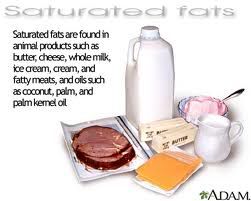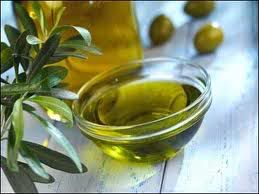 Continuing on with my “Building a Successful Diet” series I will be blogging about the dreaded macronutrient FAT! Just hearing the word makes people cringe and slowly look down at the mass sitting on top of their stomach. Fat has built up quite the bad reputation over the years, with so many overweight Americans dropping dead from heart problems, it’s no wonder we fear fat so much. I’m not here to preach about the dangers of too much fat. I’m here to explain why fat is important in your diet, and how you can use fat properly and in a healthy way. If you haven’t read Part 3 yet click here:
Continuing on with my “Building a Successful Diet” series I will be blogging about the dreaded macronutrient FAT! Just hearing the word makes people cringe and slowly look down at the mass sitting on top of their stomach. Fat has built up quite the bad reputation over the years, with so many overweight Americans dropping dead from heart problems, it’s no wonder we fear fat so much. I’m not here to preach about the dangers of too much fat. I’m here to explain why fat is important in your diet, and how you can use fat properly and in a healthy way. If you haven’t read Part 3 yet click here: A lot of diet advice you will hear is to cut fat and fat is horrible for you and blah blah blah etc. The truth is that fat is extremely important as well as CHOLESTEROL. I know this post is supposed to be about fat, but fat and CHOLESTEROL just go hand-in-hand. I have read up on fat a lot and there seems to be some conflicting information out there. Some say nuts are a good source of fat, some say they’re a bad source. Some say eat avocados others say avoid them. The best advice I can give you is to eat what you want and pay attention to how your body responds to what you eat. In my opinion fats from plants like nuts and avocados will do you good. As far as sources of fat from animals I think they are useful just not in large quantities.
 With animal fats you have to worry about SATURATED fat. SATURATED fat will lower your GOOD CHOLESTEROL (HDL) and raise your BAD CHOLESTEROL (LDL). In addition to SATURATED fat, animal fat also contains CHOLESTEROL. Contrary to popular belief your body actually needs and will use cholesterol! Yeah it really will! Your body uses CHOLESTEROL in order to produce hormones such as TESTOSTERONE. Your body also uses fat to produce HORMONES as well, this is why fat is important in a diet, and should not be cut from the diet all together. If you keep fat out of your diet, many studies have shown your TESTOSTERONE levels will take a nose dive.
With animal fats you have to worry about SATURATED fat. SATURATED fat will lower your GOOD CHOLESTEROL (HDL) and raise your BAD CHOLESTEROL (LDL). In addition to SATURATED fat, animal fat also contains CHOLESTEROL. Contrary to popular belief your body actually needs and will use cholesterol! Yeah it really will! Your body uses CHOLESTEROL in order to produce hormones such as TESTOSTERONE. Your body also uses fat to produce HORMONES as well, this is why fat is important in a diet, and should not be cut from the diet all together. If you keep fat out of your diet, many studies have shown your TESTOSTERONE levels will take a nose dive. Another way to utilize fat in a beneficial manner is to slow the digestion of carbohydrates. Why would you want to do this? Well, when you slow the digestion of carbohydrates by consuming fat, your body won’t need to have a drastic insulin spike in response to the carbohydrates. So also contrary to popular belief, consuming a “reduced fat” food item is worse for you than eating the same food item with all the fat still in it! When you take fat out of food, making it “reduced fat” or “fat free” your body will end up having a greater insulin release when the food is consumed. Since fat slows the digestion of carbohydrates taking fat out of the food allows for the carbohydrates in that food to digest more quickly. With a quick spike in insulin comes a proportionate drop in insulin or "crash" causing your body to go into fat storage mode. Essentially you end will end up gaining more fat than if you had eaten the food with the regular amount of fat!
Already I have mentioned several sources of fat: nuts, avocados, and animal fat from meat. There is also plant based oils and dairy. So what is the difference between all of these fats? Well you can organize the different types of fats into three main groups: SATURATED fat, UNSATURATED fat, and TRANS-fat. As I said before you will want to avoid SATURATED fat, but a little bit won’t hurt you. You can identify SATURATED fats, because they are generally solid at room temperature. UNSATURATED fat can be divided into two categories: MONOUNSATURATED fat and POLYUNSATURATED fat. So what’s the difference? Basically the difference is on the molecular level having to do with carbon chains and how they’re bonded. UNSATURATED fats can be identified as being liquid at room temperature.
 TRANS-fats are chemically altered UNSATURATED fats. Your body will have no use for TRANS-fat and you should avoid consuming this type of fat altogether. TRANS-fat will not only raise your BAD CHOLESTEROL levels, but it will also lower your GOOD CHOLESTEROL as well. TRANS-fat can be identified on
TRANS-fats are chemically altered UNSATURATED fats. Your body will have no use for TRANS-fat and you should avoid consuming this type of fat altogether. TRANS-fat will not only raise your BAD CHOLESTEROL levels, but it will also lower your GOOD CHOLESTEROL as well. TRANS-fat can be identified on many of your food labels as partially HYDROGENATED OIL.
So how should you plan fats into your diet? First off you should eat a small amount of fat in the first couple of meals of the day. As you progress later into the day you should be eating slightly more fat. Your last meal or two should have the majority of your daily fat in it. You should be eating a lot of fat and very little carbohydrates. You need fat at night to slow the digestion of carbohydrates and protein at night in order to gradually feed your muscles throughout the night. Another reason to consume fat at this time is that your body produces a lot of anabolic HORMONES at night and needs the fat in order to produce these HORMONES.
As you can see fat plays a vital role in your dietary needs. Remember fat is a calorie dense macronutrient and there is no reason to consume large amounts of it. SATURATED fat should be limited, TRANS-fat should be avoided altogether, and MONOUNSATURATED fat should make up the bulk of your dietary fat intake. This will conclude part 4 of my “Building a Successful Diet” series. Be sure to catch part 5 where I will be discussing the best ways to get the nutrients you need to build muscle!

No comments:
Post a Comment